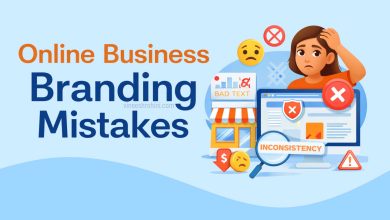5 Best Ecommerce Software For Online Store
With the rapid growth of e-commerce, choosing the right software for your online store has become essential for success. Among the plethora of options available, five prominent platforms have emerged as leaders in the industry: WooCommerce, Shopify, BigCommerce, OpenCart, and Magento. This essay provides an in-depth analysis of these e-commerce software, comparing their features, functionality, customization capabilities, pricing models, and scalability. By understanding the strengths and weaknesses of each platform, you can make an informed decision when selecting the best software for your online store.
- WooCommerce:
1.1 Overview: WooCommerce is a popular e-commerce plugin built for WordPress websites. It offers seamless integration with existing WordPress sites, making it a preferred choice for businesses already using the WordPress platform. WooCommerce provides a wide range of features, flexibility, and customization options.
1.2 Features and Functionality: WooCommerce offers a robust set of features, including product management, inventory tracking, payment gateways, shipping options, and extensive plugin compatibility. It also provides a user-friendly interface and supports a large number of themes and extensions for customization.
1.3 Customization and Flexibility: Being an open-source platform, WooCommerce offers high flexibility and customization capabilities. Users can modify the code and design to suit their specific needs. Additionally, the availability of numerous plugins and themes enables businesses to create unique online stores.
1.4 Pricing: WooCommerce itself is free, but additional costs may arise from purchasing premium themes, extensions, or hiring developers for customization. The overall cost depends on individual requirements and preferences.
1.5 Scalability: WooCommerce is suitable for small to medium-sized businesses. While it can handle a significant number of products and traffic, it may require additional optimization for large-scale enterprises.
- Shopify:
2.1 Overview: Shopify is a leading cloud-based e-commerce platform that provides a comprehensive solution for online stores. It offers an all-in-one approach, including hosting, security, and payment integration, making it a popular choice for businesses of all sizes.
2.2 Features and Functionality: Shopify offers a user-friendly interface with a wide range of built-in features, including product management, inventory tracking, payment gateways, and shipping options. It also provides access to a vast library of themes and apps for customization and extended functionality.
2.3 Customization and Flexibility: While Shopify allows customization through themes and apps, its level of flexibility is comparatively lower than open-source platforms like WooCommerce. However, its user-friendly interface and drag-and-drop functionality make it easy for non-technical users to create and manage an online store.
2.4 Pricing: Shopify operates on a subscription-based model, with varying plans to accommodate different business needs. The plans include hosting, security, and support, with additional costs for premium themes, apps, and transaction fees.
2.5 Scalability: Shopify is highly scalable, capable of handling both small and large-scale businesses. It offers robust infrastructure and handles the technical aspects of running an online store, ensuring stability and performance as the business grows.
- BigCommerce:
3.1 Overview: BigCommerce is a fully hosted e-commerce platform that provides a comprehensive solution for online businesses. It offers a range of features and tools designed to simplify the process of building and managing an online store.
3.2 Features and Functionality: BigCommerce offers a robust set of features, including product management, inventory tracking, payment gateways, and shipping options. It also provides built-in SEO tools, marketing features, and integrations with third-party applications.
3.3 Customization and Flexibility: BigCommerce provides a range of themes and templates for customization, along with the ability to modify code and design. However, its customization options are relatively limited compared to open-source platforms.
3.4 Pricing: BigCommerce operates on a subscription-based model, with different pricing plans based on business requirements. It includes hosting, security, and support, with additional costs for premium themes and apps.
3.5 Scalability: BigCommerce is designed to accommodate businesses of all sizes. It offers scalability and can handle large product catalogs and high traffic volumes without compromising performance.
- OpenCart:
4.1 Overview: OpenCart is an open-source e-commerce platform that offers a lightweight and user-friendly solution for online stores. It is known for its simplicity and ease of use, making it suitable for small to medium-sized businesses.
4.2 Features and Functionality: OpenCart provides essential e-commerce features, including product management, inventory tracking, payment gateways, and shipping options. It also offers multi-store functionality, allowing users to manage multiple stores from a single admin panel.
4.3 Customization and Flexibility: OpenCart offers a range of themes and extensions for customization. Its open-source nature allows users to modify the code and design to meet their specific requirements. However, it may require some technical knowledge for advanced customization.
4.4 Pricing: OpenCart is a free platform, but additional costs may arise from purchasing premium themes or extensions, as well as web hosting and domain registration.
4.5 Scalability: OpenCart is suitable for small to medium-sized businesses. While it can handle moderate traffic and product catalogs, it may require optimization for large-scale enterprises.
- Magento:
5.1 Overview: Magento is a feature-rich and highly customizable e-commerce platform known for its scalability and enterprise-level capabilities. It offers both open-source (Magento Open Source) and hosted (Magento Commerce) versions.
5.2 Features and Functionality: Magento provides a comprehensive set of features, including product management, inventory tracking, payment gateways, and shipping options. It offers advanced marketing and SEO features, as well as a vast marketplace of extensions for additional functionality.
5.3 Customization and Flexibility: Magento offers unparalleled customization and flexibility, allowing users to tailor their online stores to specific requirements. It provides extensive options for design, layout, and functionality customization. However, Magento’s advanced customization capabilities require technical expertise.
5.4 Pricing: Magento Open Source is free to use, but additional costs may arise from web hosting, domain registration, premium themes, and extensions. Magento Commerce operates on a subscription-based model with pricing tailored for enterprise-level businesses.
5.5 Scalability: Magento is built for scalability and can handle large product catalogs, high traffic volumes, and complex operations. It is well-suited for large-scale enterprises with demanding e-commerce requirements.
Conclusion:
Selecting the right e-commerce software for your online store is crucial for its success. WooCommerce, Shopify, BigCommerce, OpenCart, and Magento are all excellent choices, each with its own strengths and weaknesses. WooCommerce and Shopify offer user-friendly interfaces and comprehensive features, with WooCommerce being highly customizable and Shopify providing a seamless all-in-one solution. BigCommerce provides a robust solution with built-in marketing features. OpenCart offers simplicity and ease of use, while Magento stands out with its enterprise-level capabilities and customization options. Consider your business’s specific needs, budget, scalability requirements, and technical expertise to make an informed decision that aligns with your goals and objectives.



